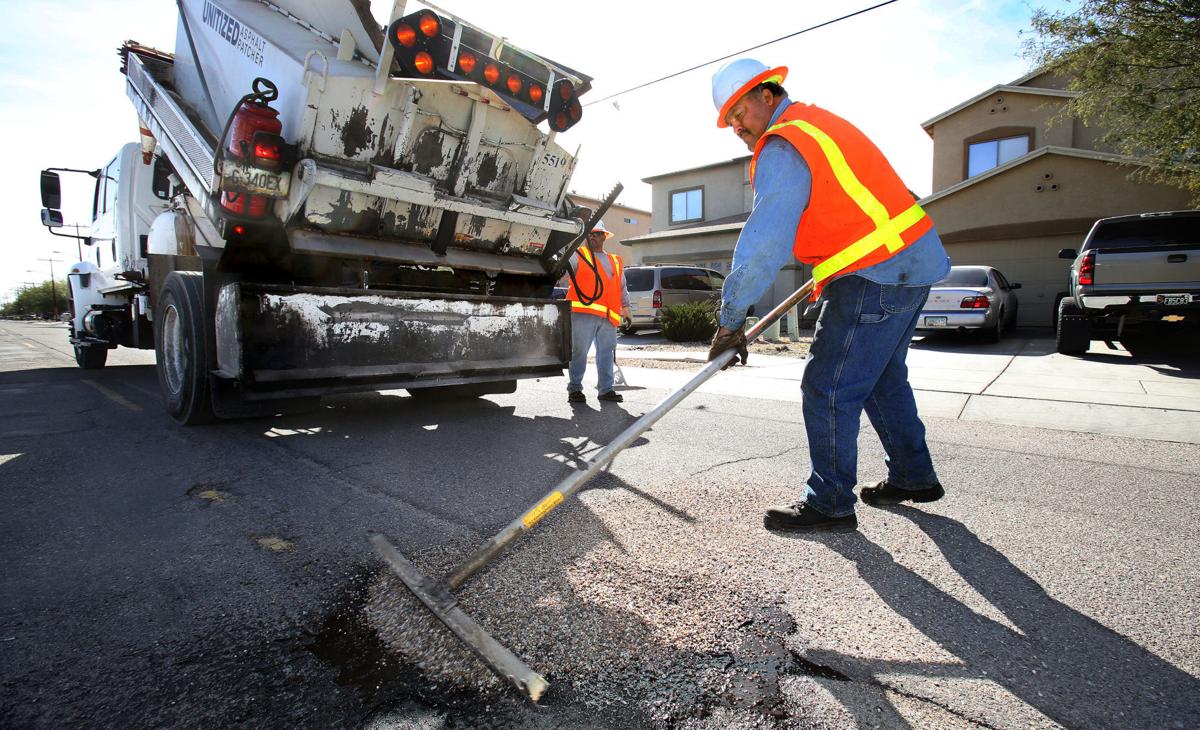PHOENIX — Unable to get the votes to raise the gas tax, a Mesa senator is settling for allowing counties to raise their own money for road needs.
On a voice vote Monday, the Arizona Senate agreed to permit the state’s 13 rural counties, for the first time, to ask their voters to impose a one-cent sales tax on themselves for road construction and repair. The levy could last up to 20 years.
Senate Bill 1147 also would allow for an immediate popular vote in the two urban counties, Pima and Maricopa, to extend their own road sales taxes before they expire.
Sen. Bob Worsley, R-Mesa, said it is clear the state has hundreds of millions of dollars of unmet road construction and repair needs.
What’s really needed, Worsley said, is a hike in the state’s 18-cent-a-gallon gasoline tax. That hasn’t been raised since 1991, when 18 cents had more buying power than it does now.
But the problem is deeper than that.
On one hand, there are far more vehicles using state roads. But they also are more fuel-efficient. The result, according to the Arizona Department of Transportation, is the number of vehicle miles driven has gone up far faster than gasoline tax revenues.
But the political reality, Worsley conceded, is he lacks the votes to raise the gas tax, especially since Gov. Doug Ducey is opposed to any increase.
SB 1147 is designed to provide some options. And it may have the necessary votes to clear the full Senate and the House, being contingent on residents of each county getting the last word.
The idea of using locally raised taxes to build and repair roads is not new or unique to the state’s two largest counties.
Testifying on a similar bill earlier this year, Scott Higginson, executive director of the Interstate 11 Coalition, said similar measures have been approved in Nevada and Utah, with proceeds earmarked for use only within specific counties.
He said Clark County, where Las Vegas is located, raised $720 million in the past three years. Some of that went to 400 local road projects, including street widening and intersection improvements, he said. And some of the dollars are being reserved for Nevada’s portion of the Proposed Interstate 11, which would run between Phoenix and Las Vegas.
Higginson said one big advantage of this kind of levy is that it leaves the decision of priorities with county officials “who know best where those dollars are needed and ought to be spent.”
But Worsley is not relying entirely on locally raised dollars to solve the state’s road-construction needs.
He is working with Rep. Noel Campbell, R-Prescott, who chairs the House Transportation and Infrastructure Committee, to impose a new fee on vehicles.
What’s behind that is the fact that the state, in various budget-balancing maneuvers, has siphoned off up to $90 million a year in gasoline tax revenues to fund the highway patrol division of the Department of Public Safety. HB 2166 would end that shift of dollars, instead using a fee of $17 to $19 a year for DPS.
That measure is awaiting a vote by the full House.





